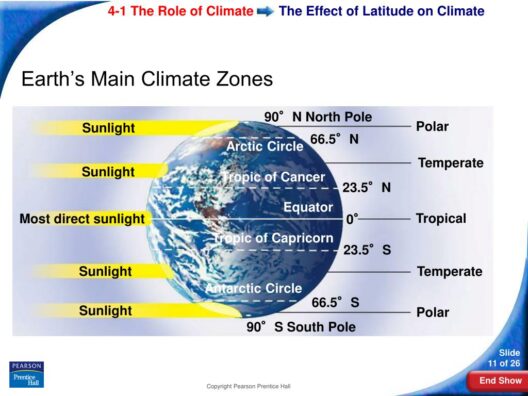In the grand tapestry of existence, humanity’s contribution is akin to weaving threads into a vast and intricate quilt. Each action taken significantly influences the overall pattern—every choice, a distinct color cascading through the fabric of our environment. As we grapple with the pressing reality of climate change, it is imperative to recognize that collective responsibility serves as the foundation beneath which we can combat global warming. Every individual holds a thread, contributing to either the unfurling disaster or a harmonious resolution.
Global warming is a phenomenon that transcends geographical boundaries and challenges individualistic mindsets. It is a shared predicament that requires the unification of public will and diverse strategies to confront. Ignoring it is akin to ignoring the slow fraying of our communal blanket; eventually, the unraveling may be irreversible. The question arises: how can the global populace band together to stem the tide of climate change? Understanding the multifaceted avenues for action is essential in engendering a robust, collective effort.
First, education acts as a powerful catalyst in this endeavor. Knowledge can illuminate the darkness of ignorance. When individuals grasp the underlying science behind climate change, they are better equipped to make informed choices. Educational initiatives tailored for diverse demographics can unearth the complexities of global warming and its repercussions. Schools, community centers, and online platforms can serve as fertile grounds for disseminating information about carbon footprints, sustainability practices, and ecological conservation. Through education, we can cultivate a society that recognizes the urgency of the climate crisis and galvanizes action.
Moreover, advocacy plays a crucial role in shaping a sustainable future. Individuals can metamorphose into powerful advocates by engaging with local, national, and global movements aimed at climate action. Grassroots organizations have shown that collective voices can reverberate through legislative halls, propelling significant policy changes. By participating in protests, signing petitions, or joining environmental NGOs, each person amplifies the call for action. This unified front can compel leaders to implement policies that prioritize sustainability and the transition to renewable energy sources.
Furthermore, as urbanization continues to burgeon, the need for eco-friendly infrastructure becomes paramount. Individuals can influence their communities by demanding sustainable development practices. Supporting local initiatives aimed at green spaces, efficient public transport, and pedestrian-friendly designs contributes to a communal ethos of environmental stewardship. This collective push towards urban sustainability transforms cities into livable environments and exudes a commitment to combating climate change. When communities prioritize green architecture and sustainable urban planning, they weave resilience into their very fabric, benefitting not just the present but future generations as well.
Transitioning to sustainable energy sources is another crucial endeavor necessitating communal cooperation. The shift from fossil fuels to renewable energy is not merely an individual choice but a collective imperative. Citizens can galvanize change by advocating for policies that support solar, wind, and other renewable energies. Additionally, through community-driven projects, people can invest in local renewable energy initiatives ranging from community solar farms to wind cooperatives. When neighborhoods proactively participate in energy generation, they not only reduce dependency on non-renewables but also bolster local economies.
Consumption patterns also dictate a considerable portion of individual impact on the environment. Embracing minimalism and conscious consumerism can significantly mitigate carbon emissions. It begins with recognizing that the quest for sustainability should permeate daily decisions—from the food we eat to the products we purchase. Supporting local, organic farmers, reducing plastic usage, and opting for sustainably sourced goods are choices that reverberate throughout the economy. When a substantial portion of the population champions these practices, it creates a ripple effect, prompting businesses to adapt to cleaner, greener practices in order to meet consumer demand.
Another salient point is the importance of community cultivation. Gardening and permaculture initiatives can significantly combat climate change while fostering local bonds. By transforming underutilized spaces into community gardens, individuals can absorb carbon, promote biodiversity, and provide fresh produce to local residents. This connectedness to the earth and each other imbues a sense of responsibility and care, creating stewards of the environment. Collective gardening helps to educate the community on ecological practices and highlights the visceral connection between humanity and nature.
Moreover, engaging in dialogue surrounding climate issues can reshape societal norms and beliefs. Town halls, forums, and online discussions can serve as conduits for sharing knowledge, experiences, and solutions. When diverse voices contribute to the conversation, the dialogue becomes richer, allowing for more comprehensive solutions to emerge. True change is fostered in environments where individuals feel empowered to speak and share insights on sustainable practices.
In addition, civic participation is paramount when it comes to demanding comprehensive climate policies. The collective voice of an informed populace can lead governments to take action in curbing emissions, protecting natural habitats, and enforcing environmental regulations. Engaging policymakers and holding them accountable creates an impetus for a paradigm shift in how climate policy is approached. When voting, citizens should prioritize candidates and measures that advocate for environmental sustainability to ensure that legislative frameworks align with the goals of combating global warming.
In conclusion, the battle against global warming is not a solitary struggle but rather a collective journey. The tapestry of human existence is intricately woven, and every thread contributes to either the deterioration or revitalization of our environment. Through education, advocacy, sustainable practices, and civic engagement, individuals can intertwine their efforts to forge a resilient response to climate change. It is an imperative for humanity to embrace this collective responsibility, thereby safeguarding the delicate balance of our planet for future generations. The time to act is now; let us unite in our endeavors to combat global warming and turn the tide towards a sustainable future.








